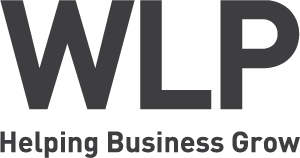A well-known Chinese proverb says “The wise adapt themselves to circumstances, as water moulds itself to the pitcher”.
Adaptability – the ability to be flexible and embrace new and creative thinking – is a crucial skill for leaders and a key emotional intelligence competency. In the Economist Intelligent Unit’s study Growing Global Executive Talent, respondents said that the top three leadership qualities are “ability to motivate staff” (35%), “ability to work well across cultures” (34%), and “ability to facilitate change” (32%). Surprisingly, “technical expertise” and “bringing in the numbers” ranked just 11% and 10% respectively.
However, adaptability does not always come easily. When we learn new skills, we create behavioural scripts. Over time, their associated actions become easier and automatic. This is very well described in Charles Duhigg’s Book The Power of Habit: Why we do what we do in Life and Business, where he describes how own brain automates what it considers routine to leave processing power for other things. While these scripts can simplify our world and increase our efficiency, there is a downside: they also act as a filter and can make us rigid in our problem solving. In his book Everyday Survival: Why Smart People do Stupid Things, Laurence Gonzales discusses the mistakes we make by working from mental scripts that do not match the requirements of our changing situation. Finally in the 1968 book Games People Play, Eric Berne describes games we get in the habit of playing because of life scripts.
Take these steps to develop your adaptability:
Watch out for behavioural scripts. When you catch yourself dismissing a new idea, consider what behavioural scripts you might have developed – are they still serving you well? You can change them!
Push the envelope. Testing new waters can be a positive thing. Remember, technical expertise alone rarely leads to executive success.
Be a snake! If new situations demand a new approach, don’t be afraid to shed the old skin and embrace new beginnings.
Emotional Intelligence Coaching can increase your adaptability and give you a competitive advantage as a leader and as a member of your team, as people with high emotional intelligence are more likely to deal positively with change adapt their approach and examine their priorities.

WLP, I stumbled on your site in my quest to understanding Adaptability. I’ve not just only read this piece, with satisfaction, it has got me reflecting on its base in Emotional Intelligence. A leader or anyone who firmly holds on to his /her practiced ways in the face of changing circumstances is certainly not emotionally intelligent. Being able to adjust – Adaptability – is key.